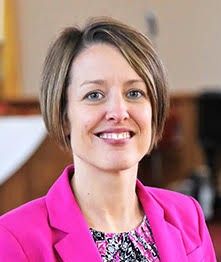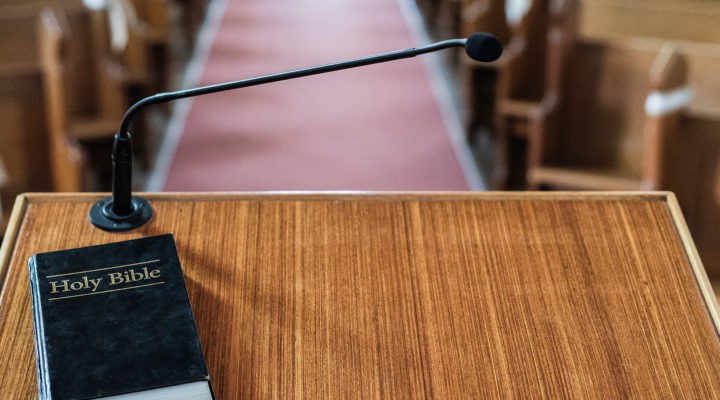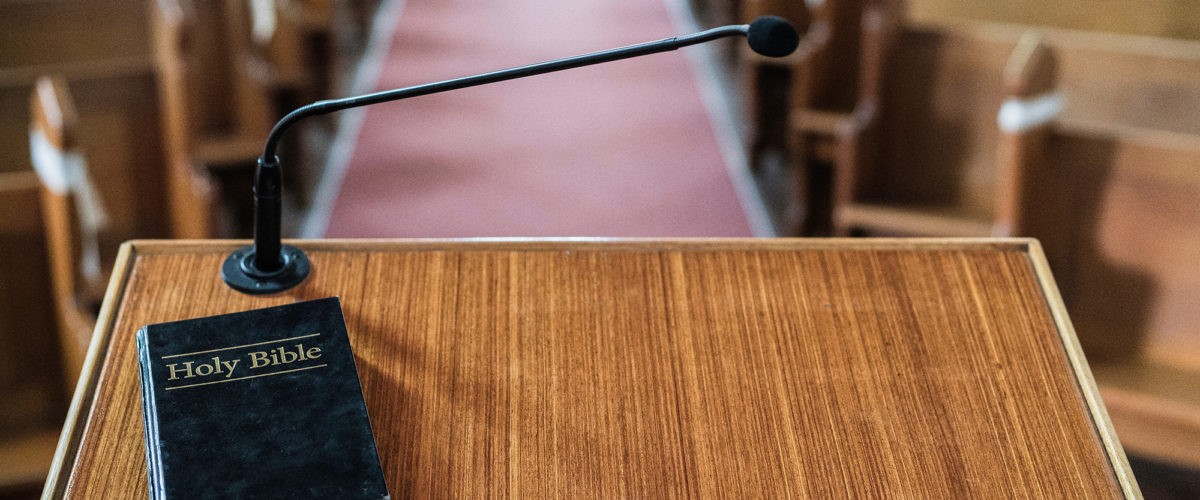This is the first in a series based on new research by Pam Durso and Carol McEntyre conducted among Baptist pastors who have left their congregations during the pandemic.
In May 2020, during the early days of the global pandemic, I (Pam) moved from Atlanta to Shawnee, Kan., to step into the role of president of Central Seminary. What a crazy, hard time to transition to a new region of the country. I quickly discovered that one of my closest geographical friends was Carol McEntyre, who lives two hours away in Columbia, Mo., where she serves as pastor of First Baptist Church. I don’t remember exactly how a new friend tradition began for us, but sometime in the summer of 2020, we began talking on the phone at least once a week during our morning commutes to work.
Fast forward to 2021 when in mid-summer our conversations began to shift from catching up with life and talking about our leadership responsibilities to mentioning the names of our minister friends who had resigned from their churches the previous Sunday. In July and August, there seemed to be at least one resignation every week, but by September, it seemed like the number was growing, and some Sundays two or three resignations were announced. Each week we lamented the increasing number of our friends who were leaving church.

Pam Durso

Carol McEntyre
On Sept. 27, my (Carol) response to the latest list of Baptist minister resignations was: “There should be a way we could document what is happening. We need to hear from those who are leaving and seek to understand all the implications this moment in history has for ministers and for churches.”
Pam’s response: “Let’s do a survey. We can gather data and see what it tells us.” It seemed like a good idea, but as we discovered, gathering information about hard realities also meant follow-up emails, texts and phone conversations as both of us had pastoral care conversations with colleagues who were hurting.
For those who have experienced difficult transitions from congregational ministry and need additional care, please know that there are resources available to you, including those provided by Ministering to Ministers, an organization that advocates for clergy and their families who have experienced conflict in the church, making continuing ministry together untenable.
As we begin to report on the survey, first some disclaimers. Our survey was constructed and distributed out of our deep concern for minister friends and for Baptist churches. We very much are invested in the well-being of both pastors and congregations. We are both lifelong Baptists, both ordained, both serving in ministry leadership roles.
Second, neither of us is a professional sociological researcher. Carol is a pastor, trained in social work and theology. Pam is a seminary president, educated as a church historian and experienced in nonprofit leadership. Thus, our research is not grounded in polished methods of sociological investigation, and we most likely missed a few steps along the way, failed to ask some important questions, and didn’t phrase sentences in the most beneficial ways.
“By the time we closed the survey, 100 ministers had participated, offering their insights about their decisions to leave their congregational positions.”
Third, we have no historic data with which to compare our findings. As far as we know, research over the years has not been done with regard to Baptist minister resignations. Thus, we don’t have substantial prior research by which we can give context to and comparison for our work.
With those disclaimers in mind, our plan is to share our findings in the next few months in a series of articles, which Baptist News Global has kindly agreed to post.
In order to situate our findings within the context of COVID-19, we invited pastors of Baptist churches who had resigned since July 1, 2020, to answer our questions and share the survey with other Baptist pastors who had left their churches in this time period. For this survey, our definition of “pastor” included those serving in senior, associate, youth, children, music, college and other staff positions in congregational settings. From the outset, we pledged full confidentially and anonymity for those participating and did note that data gathered possibly would be shared in articles that result from the research.
The survey was launched on Oct. 1 and closed on Oct. 17. Within minutes of sharing the survey on social media, we had our first responder. The survey was shared 80 times on Facebook and had 81 comments. By the time we closed the survey, 100 ministers had participated, offering their insights about their decisions to leave their congregational positions.
In the survey, the 100 ministers indicated their denominational affiliation or affiliations. Our respondents serve across multiple Baptist identities. The highest response, however, was from Cooperative Baptist Fellowship ministers, which is not surprising given that both of us have had close ties to CBF for many years.
Here is a denominational breakdown of those who participated. Some ministers have more than one affiliation.
- Cooperative Baptist Fellowship — 55%
- Southern Baptist Convention — 24%
- American Baptist Churches, USA — 21%
- Alliance of Baptists — 17%
- National Baptist Convention, USA — 1%
- Progressive National Baptists Convention — 1%
In coming weeks, we will share more of the data and offer our interpretations of our findings as well as open the conversation for your feedback and insight. What we know is that this survey presents a snapshot of a short slice of time in Baptist life, a time influenced by extraordinary societal circumstances and significant challenges to the church. We also recognize that this snapshot has a broader context in that numerous workers in the helping professions, including teachers and medical personnel, also were leaving their professions during this period at what seems to be a higher than usual rate.
Our shared hope is that our learnings will offer both an understanding of what many ministers have endured in the past 18 months and be instructive for churches as they seek a way forward in supporting and resourcing their ministers. In our next article, we will share the reasons cited for leaving congregational ministry and offer some thoughts about the top reason given — opposition to pastoral leadership.
Pam Durso serves as president of Central Seminary. Carol McEntyre serves as pastor of First Baptist Church in Columbia, Mo., and is immediate past moderator of the Cooperative Baptist Fellowship.


